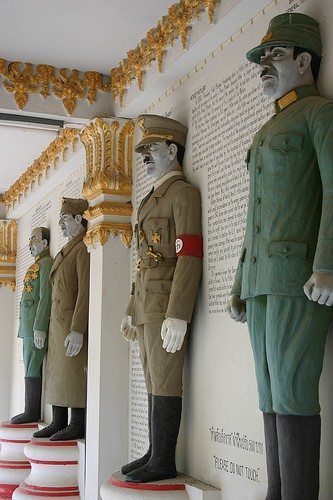What is money? Perhaps it’s the liminal space between what you have today and what you want and need “tomorrow.”
Economists will tell you that money is a “store of value.”
Ben Franklin told us that “Time is money.”
George Herbert said, “A penny spar’d is twice got” (c. 1633).
So why do we experience such ambivalence about money and allow it to hold so much power over us? Why do we tell ourselves, “I’ve got to hang onto this job I hate because I need the money?”
The simple fact is that our actions have created a tyrant whose grip on us seems unbreakable.
How might we treat a tyrannical manager? What are the characteristics of treating money as that ‘god’?
- Respect/homage
- Fear—burying our head in the sand
- Giving the tyrant power over how we feel, how we act
- Trusting the tyrant to give us something we need
- Pleasing the tyrant at any cost
How can we ‘dethrone’ the money tyrant?
Consider this story from my Colorado Financial Planning Association (COFPA) colleague Richard (Dick) Wagner. Dick relates the story of how the name of his firm came to him:
A number of years ago, I had the honor of welcoming the first class of Certifiedof Certified Financial Planner (CFP) licensees from Japan into the FPA. One of the licensees took it upon himself to demonstrate some of his methods of working with families. In due course, he pulled out a huge, leather-bound ledger, weighty and clearly important. It was in Japanese, of course, and totally indecipherable to me. He then proceeded to take us through some of its sections.
“Here are investment assets. Here are insurance policies. Here is their real estate planning and taxes. And this section contains WorthLiving assets,” explained my colleague, as he carefully turned the pages.
After I had asked twice the meaning of ‘WorthLiving assets’, my mentor hesitated. Then he looked at me patiently and tolerantly. He proceeded to explain hesitantly, as if to a child, using small words imparting wisdom with the sort of accent that makes anything sound profound, “‘WorthLiving assets’ are like family, art, religion, community and education. They are the sorts of assets that make life worth living.”
As long as one remains stuck in the old paradigms of money as asset class, money as “freedom,” money will continue to be the tyrannical master that lords over us in life—enslaving us in jobs we hate, in retirement—engendering fear that we’ll run out of money, and even in death—creating fear of the mess we might leave behind to our loved ones.
The way to empower ourselves to dethrone money is to determine: What are my WorthLiving Assets?
Toolkit:
Following is a money tool you may find helpful to identify your greatest WorthLiving Asset.
George Kinder, author of The Seven Stages of Money Maturity, asks three questions to help us identify these assets:
- If you were totally financially secure, how would you spend your time?
- If you had 5-10 years to live, how would you spend your time?
- If you had 24 hours to live, how would you spend that time?
This week, take some time to consider how you would answer these questions. What is your Blinding Flash of the Obvious (BFO) from this exercise? What are your WorthLiving assets?





